3a/352 South Street O’Connor WA 6163 | (08) 93376460
Home » Physio Fremantle » Osteoarthritis Physio
Struggling with joint pain and stiffness? Our expert physio for osteoarthritis can help reduce pain, improve mobility, and keep you moving. Book your appointment today!
Osteoarthritis (OA) is a common joint condition that affects millions of Australians, causing pain, stiffness, and reduced mobility. While OA is often associated with ageing, it can develop at any stage due to factors such as joint overuse, previous injuries, genetics, and lifestyle choices.
Physiotherapy is one of the most effective non-surgical treatments for managing OA, helping to reduce pain, improve function, and maintain an active lifestyle.
At Next Wave Therapy, we take a holistic and evidence-based approach to osteoarthritis treatment. Our osteoarthritis physios assess your symptoms, movement patterns, and lifestyle to develop a personalised treatment plan.
To book a physio for osteoarthritis, simply click the button below and fill out our online booking form, or call us at 08 9337 6460.
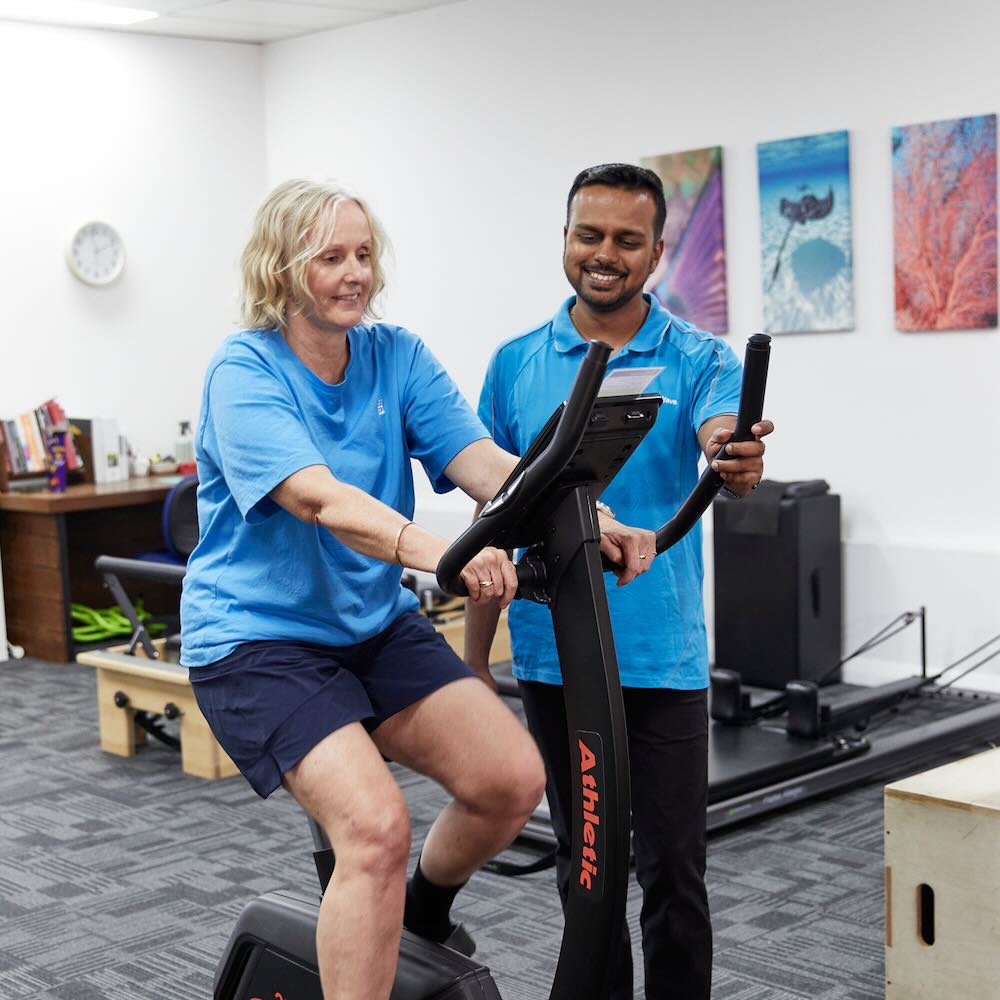
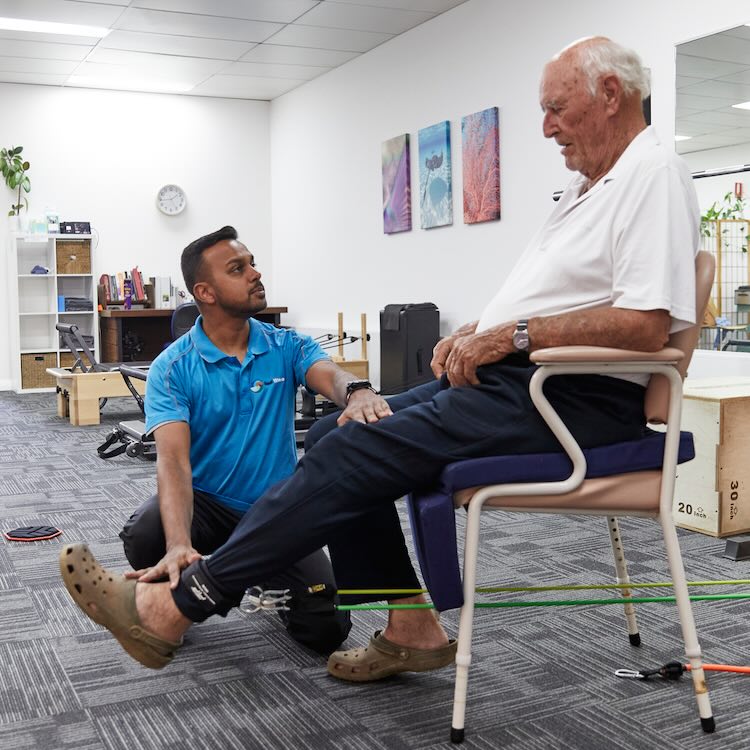
Source: Wang, W., Niu, Y., & Jia, Q. (2022). Physical therapy as a promising treatment for osteoarthritis: A narrative review. Frontiers in Physiology, 13, 1011407. https://doi.org/10.3389/fphys.2022.1011407
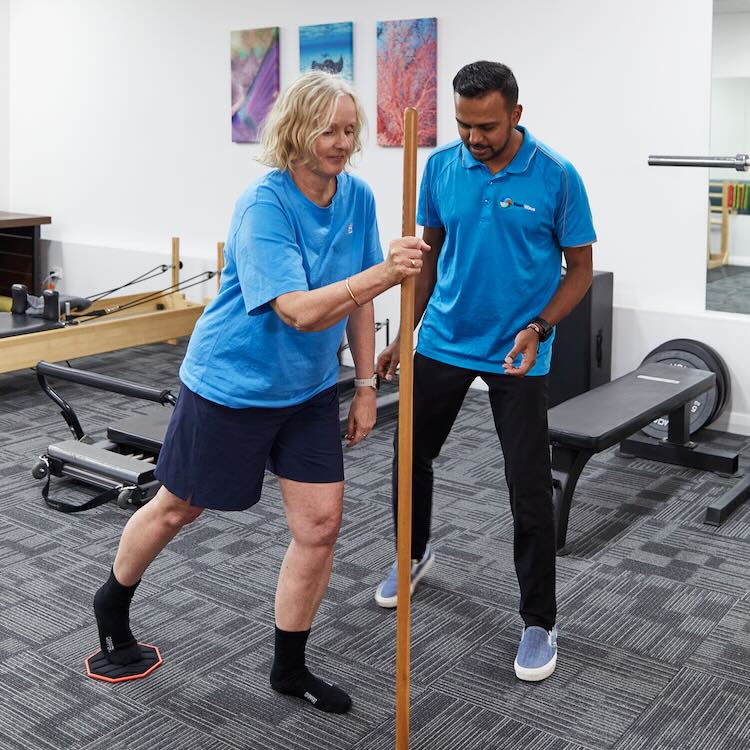
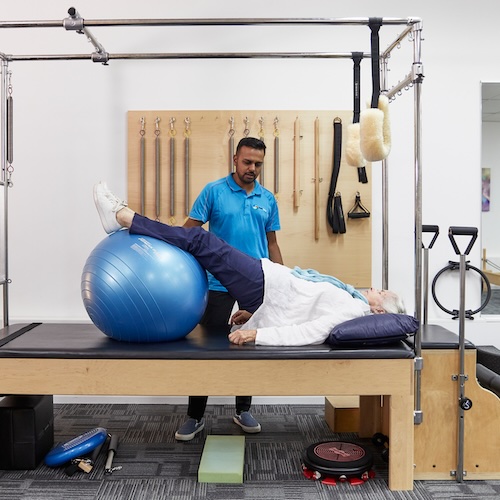
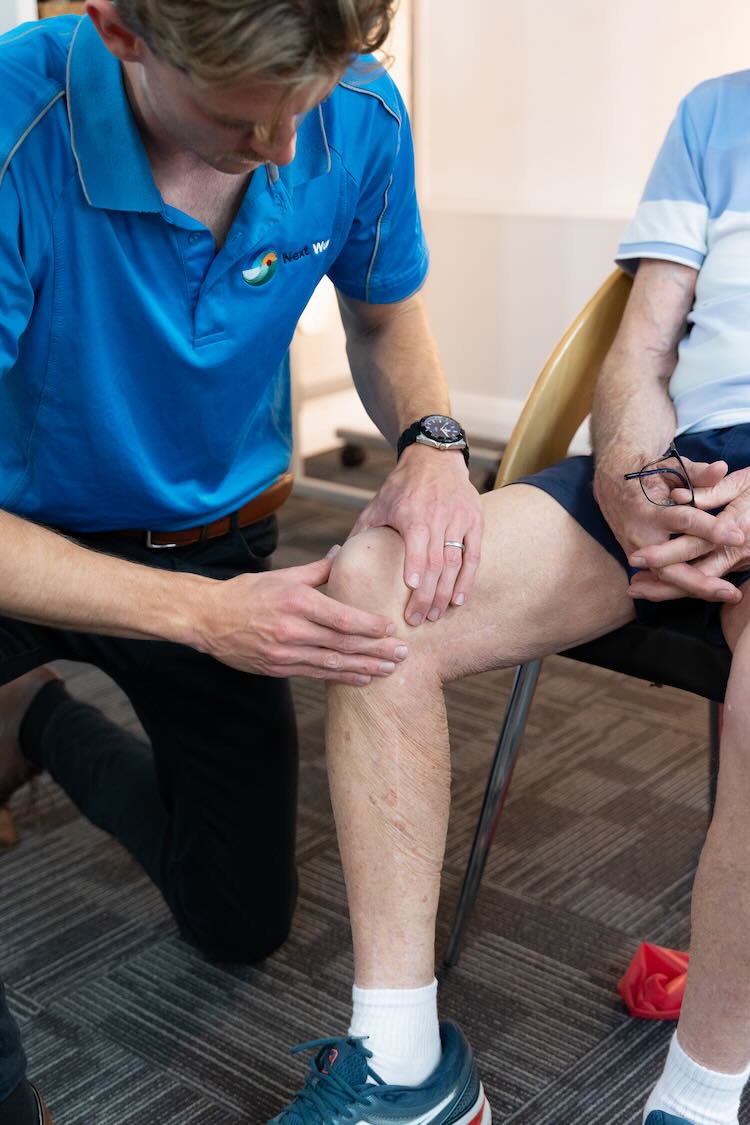
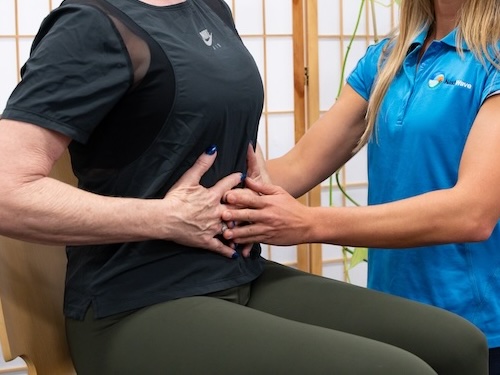
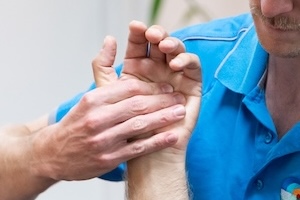
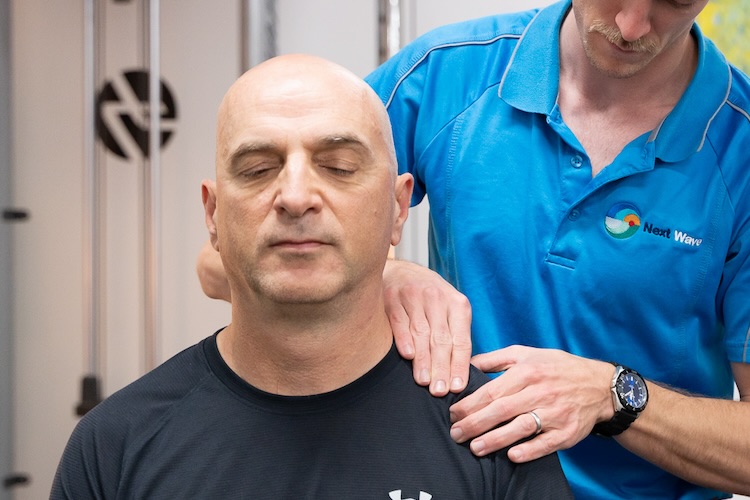
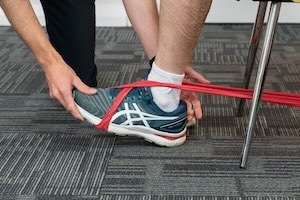
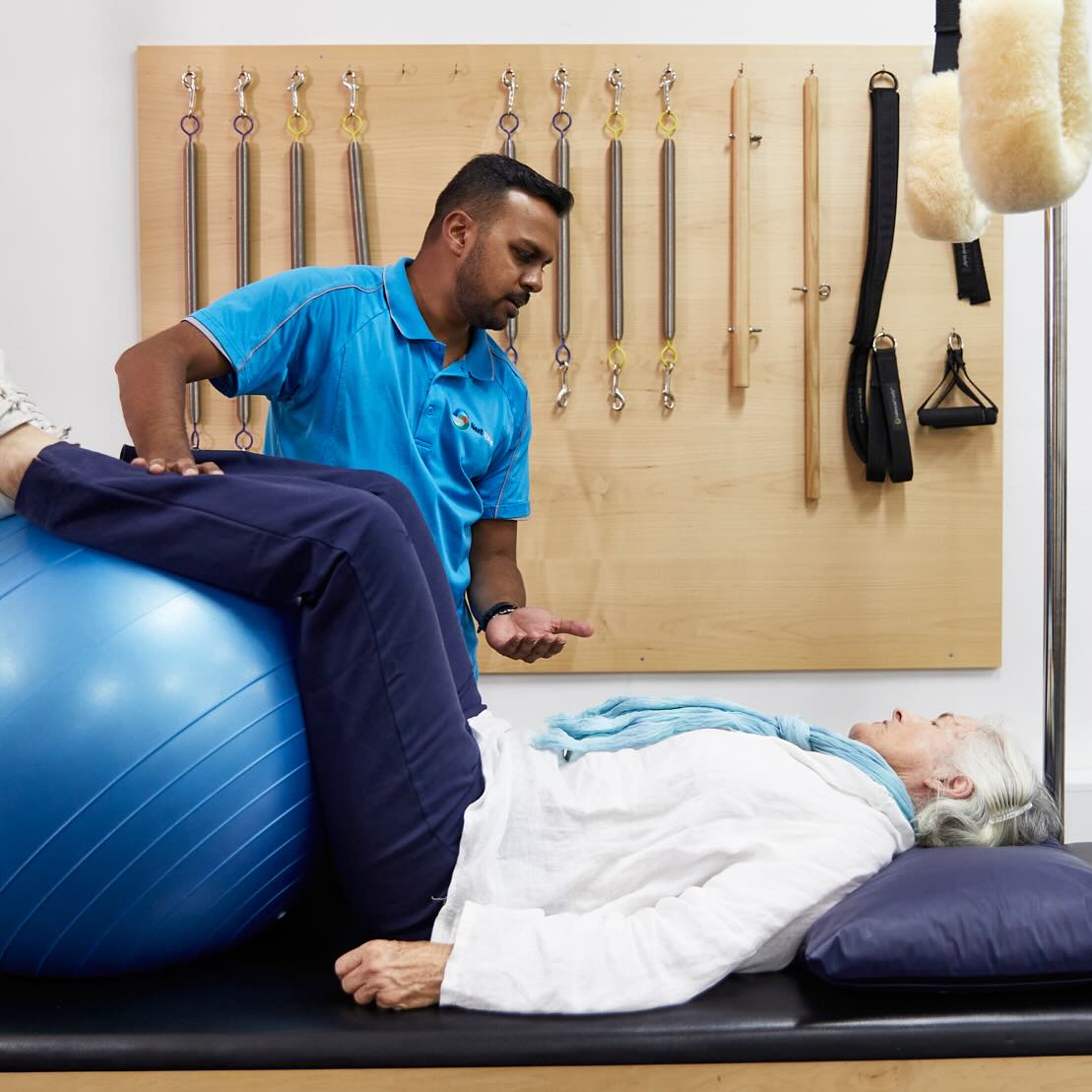
The GLA:D® (Good Life with osteoArthritis: Denmark) program is an internationally acclaimed initiative that provides education and exercise under the guidance of a physiotherapist.
It is recognised as the first-line, evidence-based treatment for hip and knee osteoarthritis (OA).
At Next Wave Therapy in O’Connor, our physiotherapist Rushil Shah leads this transformative program, helping you manage pain, improve mobility, and enhance your quality of life.
To book online, click the button below to use our online booking system, or call us at 08 9337 6460.
Osteoarthritis develops due to a combination of lifestyle, genetic, and environmental factors. Here are some of the most common causes:
Identifying and managing these risk factors can help slow OA progression and reduce symptoms.
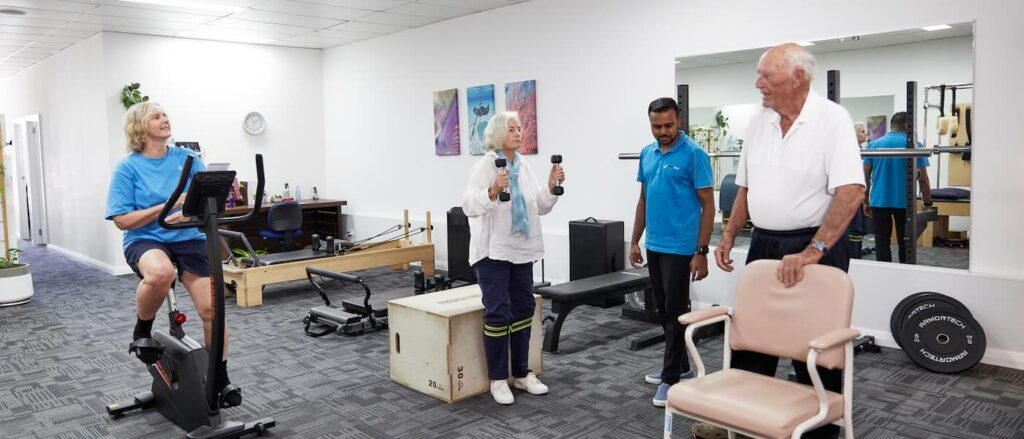

Dr. Wray specialises in managing complex musculoskeletal and sports injuries with a focus on swimming and surfing injuries.

Rushil has a passion for treating athletes, with a special focus on golf, racquet sports, cricket, and gymnastics.

Amy specialises in injury rehabilitation and return-to-sport planning, with a focus on CrossFit, running, and cycling.
Strength and resistance training, neuromuscular exercises, and low-impact activities like hydrotherapy, yoga, and the GLA:D™ program are highly effective for improving mobility and reducing pain.
Yes, physiotherapy can help slow the progression of osteoarthritis by maintaining joint mobility, strengthening supporting muscles, and reducing stress on affected joints.
Many patients experience improvements in pain and mobility within a few weeks, but long-term benefits depend on consistency with exercises and treatment plans.
Cancellations with less than 24 hours notice or non-attendance are billed at 50% of the consult fee and do not qualify for a rebate.
A doctor’s referral is generally not required unless your condition is associated with Workers Compensation, Motor Vehicle Injury, Veterans Affairs, or a Medicare Mental Health Care plan. In most cases, you can directly schedule an appointment since all our physiotherapists are primary contact practitioners capable of providing comprehensive care without a referral.
To access physiotherapy services through Medicare, you must have a referral from your GP under the Chronic Disease Management Plan, often referred to as an Enhanced Primary Care Plan (EPC). This plan is necessary for Medicare coverage when seeing a physiotherapist.
To access occupational therapy services through Medicare, you must have a referral from your GP under the Chronic Disease Management Plan (EPC) or a Mental Health Care Plan (MHCP). This plan is necessary for Medicare coverage when seeing an occupational therapist. For more information on eligibility and how to claim, refer to our schedule of fees explaining how Medicare can be used for occupational therapy.
As a person seeking healthcare in WA, you have the right to access, safety, respect, partnership, information, privacy, and the ability to provide feedback. For more detailed information on your rights, review the Australian Charter of Healthcare Rights.
We prioritise your privacy. Our strict privacy policy ensures the confidentiality of your personal information, using it solely for your healthcare. If you have any privacy concerns or questions, please reach out, and we’ll address them promptly. Your trust is crucial to us. Review our privacy policy here.